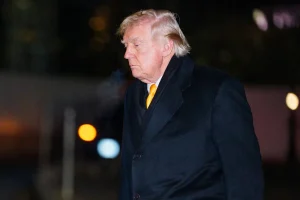Vitalik Buterin’s Memecoin Sales: Ethereum Founder Liquidates Unsolicited Token Gifts
Ethereum Founder Converts Unwanted Memecoin Gifts into Substantial Returns
In the ever-evolving world of cryptocurrency, even the industry’s most respected figures must occasionally manage unsolicited digital assets. Recent onchain data reveals that Ethereum co-founder Vitalik Buterin has liquidated several memecoin holdings that were initially sent to his wallet without his consent—a common promotional tactic employed by developers seeking to capitalize on his prominent status in the blockchain community.
According to blockchain transaction records, Buterin recently sold two particular memecoins—ERC20 and PUPPIES—that had been airdropped to his wallet address by their respective development teams. The sales generated significant returns, with the ERC20 tokens yielding approximately $13,889 while the PUPPIES tokens resulted in a more substantial $114,700. Following standard financial management practices, Buterin converted the proceeds from the ERC20 sale into USDC, a popular stablecoin pegged to the US dollar, while maintaining the PUPPIES sale proceeds in Ethereum’s native cryptocurrency, ETH.
A History of Handling Unsolicited Tokens
This isn’t the first time Buterin has had to manage unexpected token allocations. While his occasional Ethereum sales often generate headlines due to their potential market impact, perhaps his most noteworthy token disposition occurred with Shiba Inu (SHIB)—a popular memecoin whose developers sent a substantial portion of the total supply to Buterin’s wallet as a promotional strategy. Rather than simply cashing out for personal gain, Buterin donated a significant quantity of these tokens to a hospital in India during a critical period, demonstrating his philanthropic approach to handling these unsolicited assets. The current status of those donated tokens remains undocumented in public records.
The practice of sending tokens to prominent cryptocurrency figures without consent has become a controversial marketing strategy in the crypto space. Developers frequently allocate portions of their token supply to high-profile wallets like Buterin’s, hoping to create an impression of legitimacy or endorsement. This approach, sometimes called a “marketing airdrop,” allows projects to claim association with industry leaders who had no involvement in or knowledge of the project. For recipients like Buterin, these unsolicited tokens create an unexpected responsibility to manage assets they never requested.
Current Holdings and Broader Implications
Analysis of Buterin’s publicly known cryptocurrency wallets indicates he still holds several substantial memecoin positions, including WHITE tokens valued at approximately $2.47 million, MOODENG worth around $511,000, and KNC valued at roughly $284,000. These holdings represent just a fraction of the numerous tokens that have been sent to his addresses over the years, highlighting the scale of unsolicited distributions directed toward influential figures in the blockchain ecosystem.
The phenomenon of prominent figures receiving and subsequently selling unwanted tokens raises important questions about transparency and market influence in the cryptocurrency space. When well-known individuals like Buterin liquidate these positions, their actions can significantly impact token prices and holder sentiment, despite having never sought these assets in the first place. This creates a complex ethical landscape where recipients must balance personal financial management with awareness of their potential market impact.
The Evolution of Memecoin Marketing Tactics
The practice of sending tokens to industry luminaries represents just one aspect of the evolving marketing landscape for memecoins and other cryptocurrency projects. Unlike traditional financial assets, which typically launch through regulated offerings with clear disclosures, many cryptocurrency tokens emerge through more unconventional channels. The memecoin sector in particular has developed unique promotional approaches that often leverage celebrity association, viral marketing, and community engagement to drive adoption and trading volume.
For serious blockchain developers and cryptocurrency advocates like Buterin, these promotional tactics can create unwanted associations with projects that may not align with their values or professional focus. When developers send tokens to prominent wallets without permission, they effectively force these industry leaders into an unwanted relationship with their project. The recipients then face difficult decisions about whether to hold, sell, donate, or otherwise manage these unsolicited assets, knowing their actions will be closely scrutinized by market participants and possibly misinterpreted as endorsements.
The Future of Unsolicited Token Distributions
As the cryptocurrency ecosystem continues to mature, the community’s approach to unsolicited token distributions and promotional airdrops may evolve. Some industry participants have suggested technical solutions, such as wallets that can automatically reject certain token transfers or more stringent requirements for adding tokens to public blockchain explorers. Others emphasize the importance of education, helping crypto users understand that the presence of a token in someone’s wallet does not constitute endorsement or participation.
For influential figures like Buterin, managing these unwanted assets remains a delicate balancing act between personal financial considerations and awareness of their significant market influence. By converting these tokens to established cryptocurrencies like ETH or stablecoins like USDC, Buterin demonstrates a pragmatic approach to handling these unsolicited gifts while maintaining his focus on advancing blockchain technology and the Ethereum ecosystem. As the cryptocurrency market continues to develop, the community will likely establish more formalized norms and practices around these unique promotional strategies and their implications for high-profile recipients.
Disclaimer: This article is provided for informational purposes only and does not constitute investment advice. Cryptocurrency investments involve significant risk, and readers should conduct their own research before making financial decisions.













